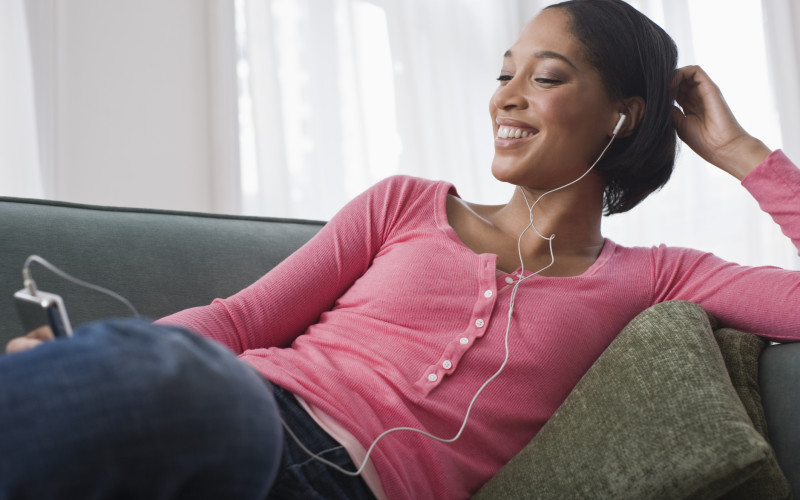Do iPods and rock concerts cause hearing loss?

Do iPods and rock concerts cause hearing loss? The short answer is: absolutely — unless the proper precautions are taken.
Noise is the leading cause of hearing loss — not age, as one might expect. Any sound louder than normal conversational speech, over time, can cause permanent damage to the very delicate hearing structures inside of our ears.
When we hear a sound, it travels down our ear canal and vibrates the ear drum (tympanic membrane). The sound is changed to mechanical energy through three small bones (malleus, incus and stapes) and is carried to the inner ear, where the cochlea resides. When we are born, the cochlea consists of about 30,000 hair cells that work like an intricate keyboard. Those hair cells change the sound we hear into electrical impulses that travel up the auditory nerve to the brain where they are processed.
To think about the cochlea in another way to help better understand the impact noise can make, you can imagine it like a carpet. The carpet consists of 30,000 carpet fibers. If you were to install the carpet in the entryway of a home, the area closest to the front door are high frequency sounds (consonant sounds). As you travel down the hallway, mid-frequencies are next, and low-frequency sounds are at the end of the hall.
Noise can be related to someone walking on that carpet. The louder the noise, the more weight on your feet. Over time, or immediately if the sound is loud enough, the carpet fibers mat down just as hair cells do in the cochlea, and the carpet that was once plush is no longer. The first area of damage is typically the high frequencies, because they are the most exposed. The matting of the hair cells prevents them from sending information to the auditory nerve; we call that sensorineural hearing loss.
Sound pressure is measured in decibels. The Occupational Safety and Health Administration (OSHA) requires that hearing protection be provided in a workplace where workers are exposed to noise over 85 decibels for an eight-hour period.
Unfortunately, there isn’t any regulation of noise in everyday life. IPods have to ability to produce a maximum output of about 100-115 decibels. “Average adolescents listen to an iPod at the same decibel level (95 to 100) as you would be exposed to if you were standing on a tarmac when a 747 takes off” according to Dr. Daniel Levitan, a neurologist who was interviewed for a New York Times article marking the iPod’s 10th birthday. Rock concerts are no different, sometimes exceeding 120 decibels for a period of several hours. These more extreme decibels levels have the ability to create a permanent hearing loss in a very short period of time — even instantaneously.
Protecting your hearing is not difficult and shouldn’t be considered a stigma. There are simple steps that can be taken to prevent permanent damage:
- If you have to ask if a sound is too loud, that’s a good indication that it probably is too loud.
- Try to limit yourself from exposure to loud noises. If you know you will be exposed, wear appropriate earplugs (cotton balls will not work).
- Limit the volume of your iPod, iPhone or other device to less the 60 percent of the available volume.
- When setting your volume, set the volume while in a quiet area. There are several research studies to suggest that one of the reasons iPods are listened to so loudly is because the volume is turned up to combat surrounding background noise. So setting the volume in quiet and leaving it there can be a good way to make sure you are listening at a safe volume. If available, use noise-cancelling over-ear headphones rather than in-ear headphones.
- If someone sitting next to you can hear the song you are listening to, it is too loud. Turn down the volume.
- Be an advocate. Education is key and everyone is exposed to noise. Explain the dangers of exposure to noise and the risks with people you know.
- If you are concerned that you may have exposed yourself to loud noise, notice ringing in your ears (tinnitus), or any change to your hearing, see an audiologist. The audiologist can check your hearing and provide you with valuable information about the prevention of hearing loss.
This world is a very noisy place, and as technology increases, so will the noise level. We need to increase awareness of all noise and reduce the stigma of hearing protection so we all can continue to enjoy the sounds we love so much. You will thank yourself one day for taking a little extra time to keep your ears healthy.
For more information, the American Academy of Audiology provides guidelines on noise at Turn it to the Left.